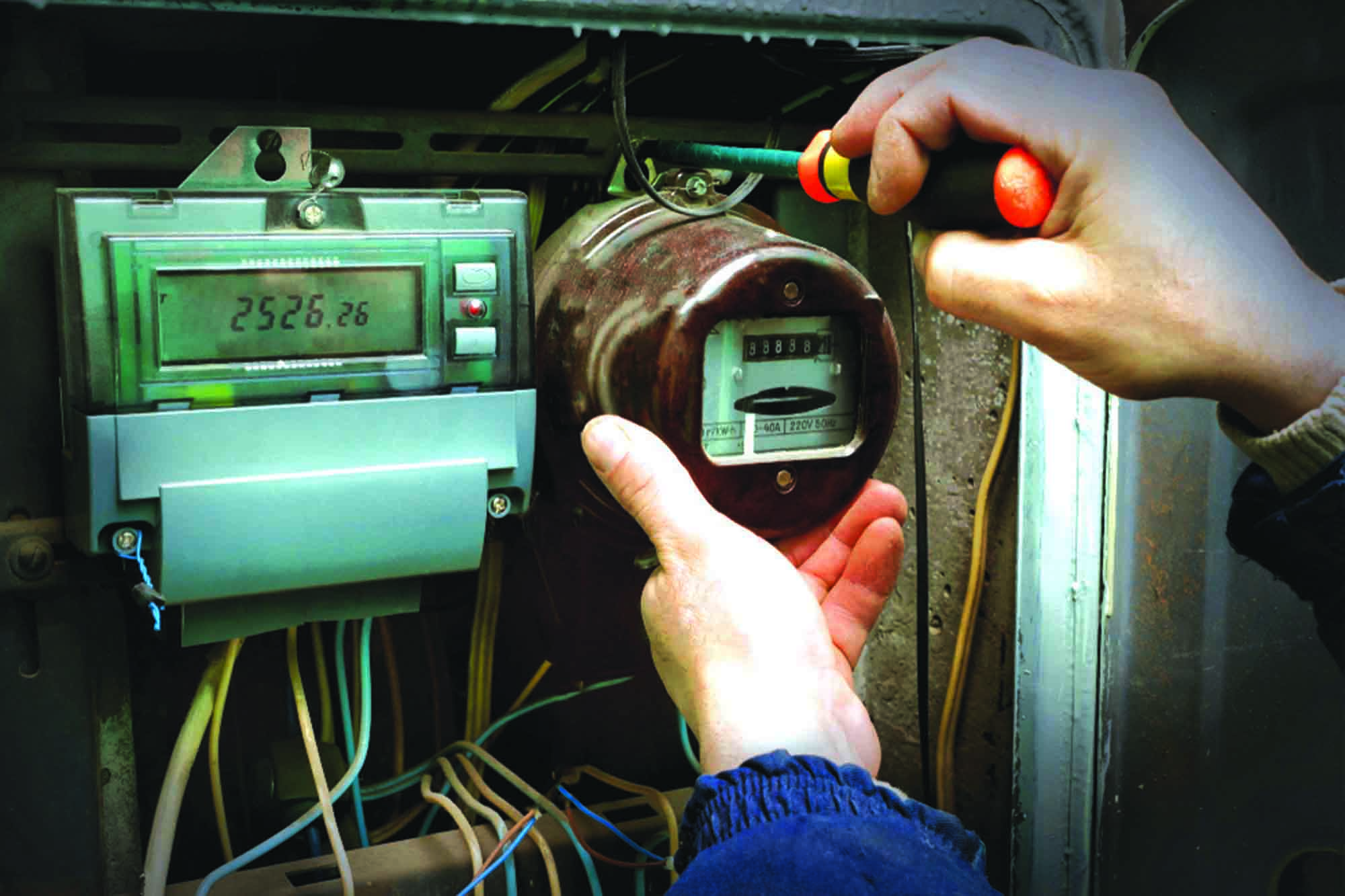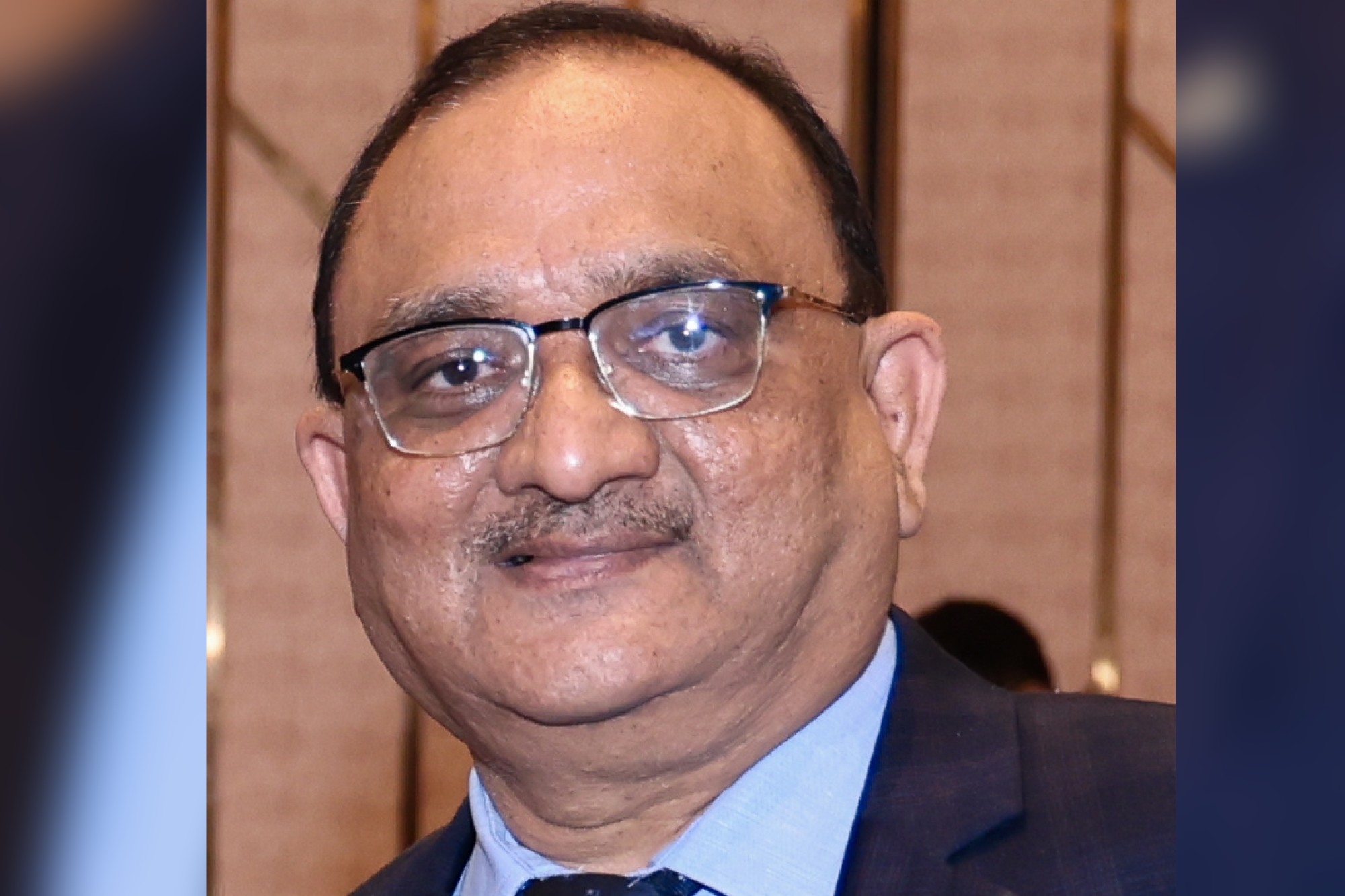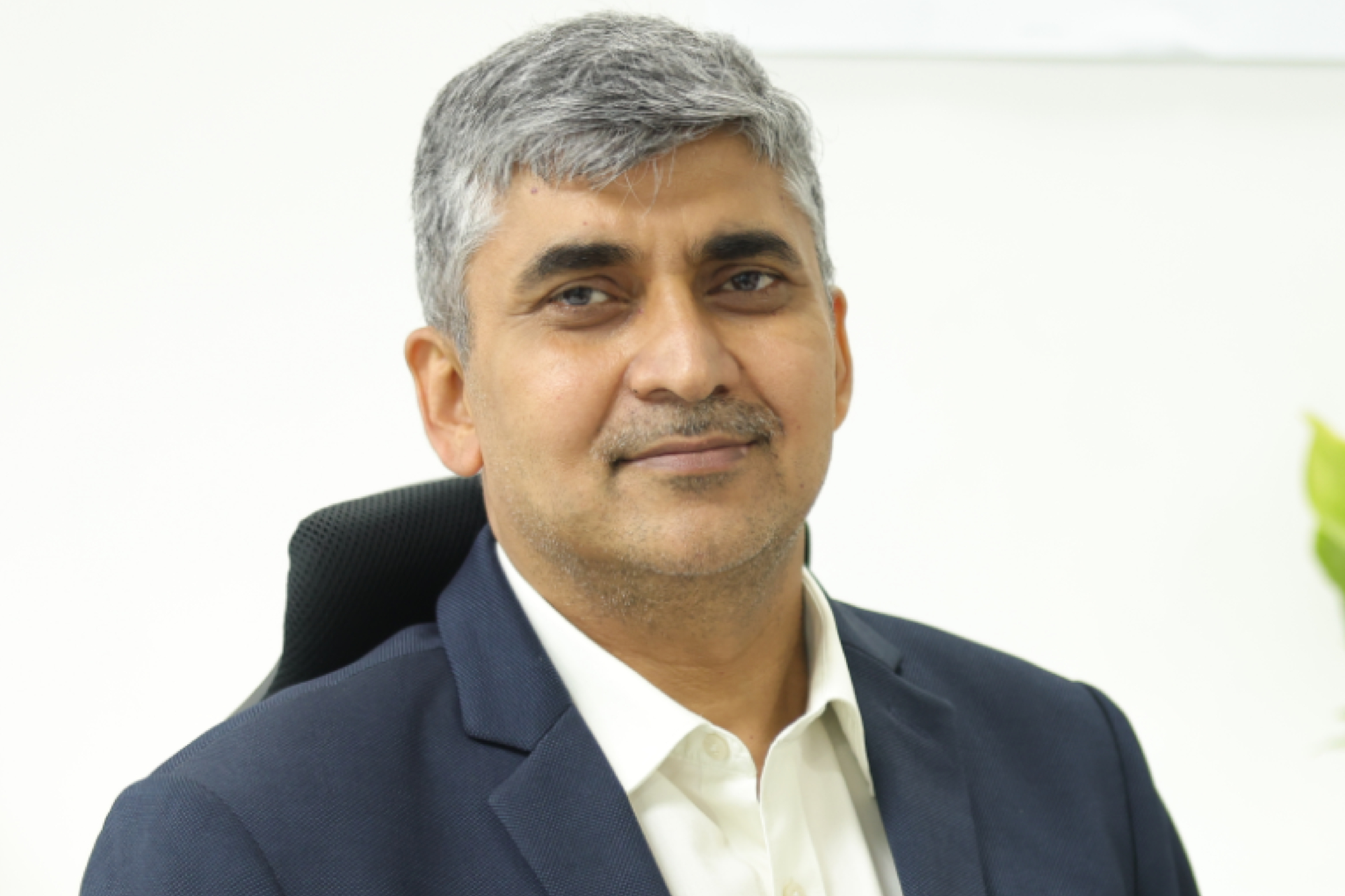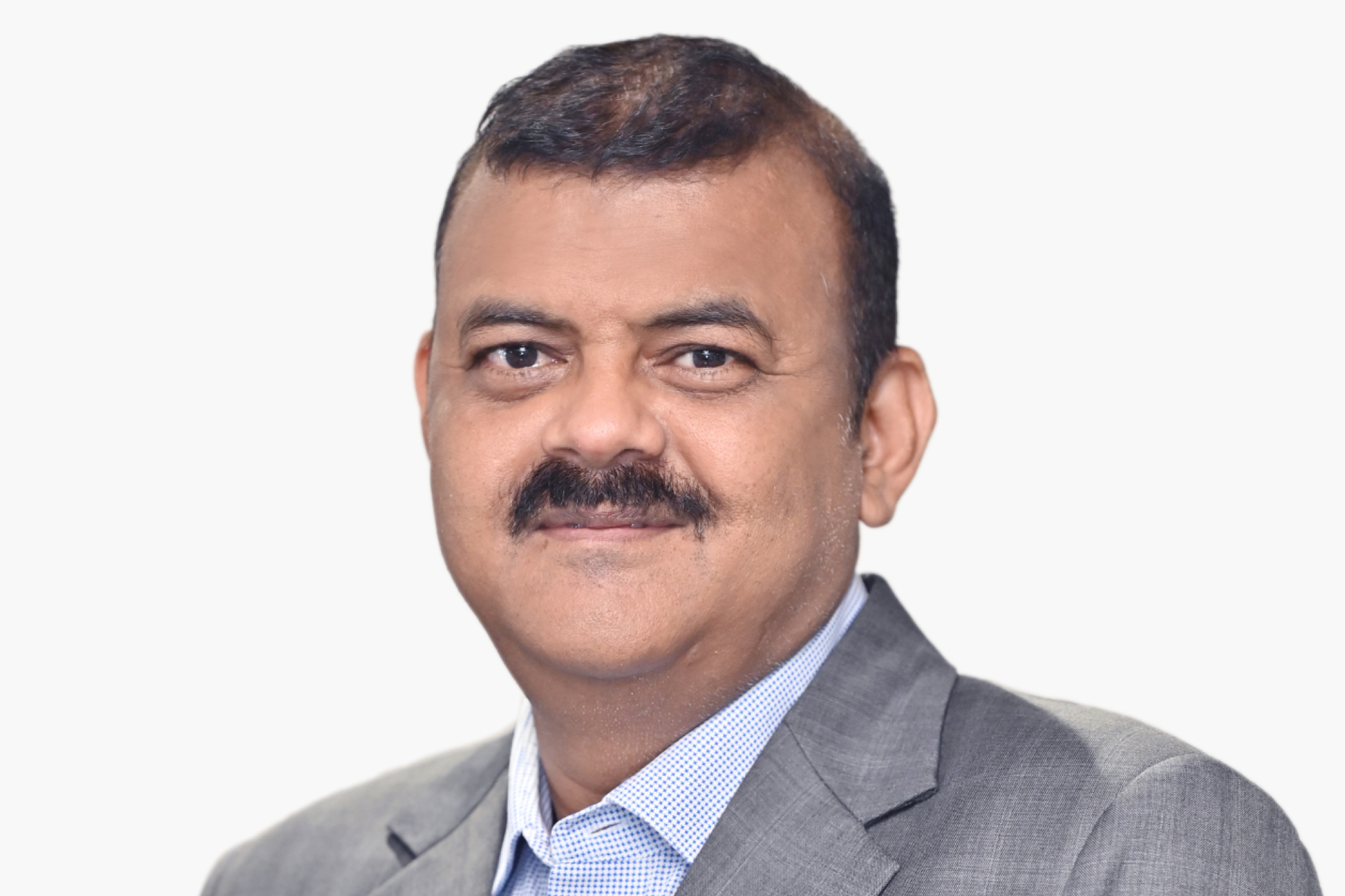Making every unit count
By Staff Report June 25, 2025 11:57 am IST
By Staff Report June 25, 2025 11:57 am IST

Through a series of thoughtful safeguards, the government and key implementation partners are making the shift to smart metering that is inclusive, transparent and consumer-friendly.
———————————————————-

Manish Godha, Global Head – Channel Management, Secure Meters
“Our smart metering solutions deployed across solar installations and microgrid systems capture accurate real-time data on energy generation and consumption.”
—

Surya Pratap Singh, COO- IntelliSmart
“We work closely with DISCOMs, field teams and consumers to build trust, raise awareness and ensure transparency.”
—

Manoj Kumar Modi, CGM and Head – Operations (Strategic Growth), EESL
“Smart meters also allow solar panels and battery storage to be integrated smoothly, increasing a microgrid’s ability to function independently and withstand challenges.”
———————————————————-
India is undergoing a significant transformation in its power distribution sector through the ambitious Revamped Distribution Sector Scheme (RDSS), which aims to install 250 million smart meters nationwide. This shift from traditional electromechanical meters to intelligent, digital alternatives marks a critical step toward building a modern, efficient and responsive power grid. Smart meters are designed not only to improve billing accuracy and reduce power losses but also to ensure that consumers benefit from real-time data that encourages responsible energy use and supports the integration of renewable energy sources. However, this transition is not without its challenges. Infrastructure gaps, consumer resistance, integration with legacy systems and rural connectivity issues remain key hurdles. Let us delve into the story with insights from industry experts analysing the scenario.
The transition from legacy to smart meters
The revamped Distribution Sector Scheme (RDSS), an ambitious smart metering programme, marks a transformative step toward building a modern and intelligent power grid. With the government targeting the installation of 250 million smart meters under this programme, the transition from conventional electromechanical meters to smart meters is rapidly gaining momentum. However, this large-scale shift comes with several practical and systemic challenges.
“The transition from legacy meters to smart meters presents several challenges ranging from infrastructure readiness and consumer resistance to interoperability with existing systems, B2B integration and limited network coverage in rural areas,” says Manish Godha, Global Head – Channel Management, Secure Meters. Utilities also face challenges in workforce training, seamless integration with existing billing systems, managing large-scale rollouts across diverse geographies, and strengthening cybersecurity.
Surya Pratap Singh, COO of IntelliSmart, shares his views: “Utilities face issues related to consumer awareness, system integration and ensuring minimal disruption across regions. In addition, there are technical challenges around technology interoperability and data protection.”
Despite these hurdles, the implementation agencies are deploying targeted and multi-dimensional strategies to drive adoption and streamline the transition. Secure Meters has placed a significant focus on building public trust and educating end-users. “We prioritise consumer education by conducting awareness campaigns and community outreach programmes, helping build trust among end-users,” Godha explains. The company also offers a mobile application that provides users with real-time insights into their electricity consumption, promoting transparency and empowering consumers to take control of their energy usage.
Secure’s technical readiness is another key enabler. “Our systems are engineered for seamless integration with legacy infrastructure, ensuring minimal disruption during deployment,” Manish adds. To protect consumer data, the company has implemented secure firmware updates, encrypted communications and global-standard authentication protocols throughout the meter’s lifecycle.
IntelliSmart brings strong project management expertise and robust stakeholder engagement to the table. “Our strategic partnerships and domain knowledge enable scalable deployments,” says Singh. In states like Assam, the company introduced process innovations that closed long-standing workflow gaps, setting new benchmarks for the smart metering programme. “Our innovations have successfully plugged system leaks in Uttar Pradesh, Gujarat and Bihar as well,” he notes.
Stakeholder engagement remains central to IntelliSmart’s deployment model. “We work closely with DISCOMs, field teams and consumers to build trust, raise awareness and ensure transparency,” Singh emphasises. The company also places significant focus on capacity building through workforce training, ensuring a smooth and safe rollout of advanced metering infrastructure.
Meanwhile, Energy Efficiency Services Limited (EESL) has approached the transition with its unique Demand-Based Finance Own Operate Transfer (DBFOOT) model, which relieves Distribution Companies (DISCOMs) of upfront capital expenditure. “The transition from legacy to smart meters is not just a technological upgrade; it is a shift toward a more responsive grid,” says Manoj Kumar Modi, CGM and Head – Operations (Strategic Growth), EESL. “Our model helps reduce the instant financial burden on DISCOMs,” he says. EESL has also addressed several foundational challenges, including consumer readiness, communication gaps, feature upgrades and integration with legacy billing systems.On the cybersecurity front, all three players have adopted rigorous safeguards to ensure data integrity and consumer privacy. “Our meters employ encrypted communication, secure firmware updates and robust authentication protocols,” says Godha. IntelliSmart takes a holistic view of cybersecurity, securing the entire Advanced Metering Infrastructure (AMI) stack with device-level protections, encrypted communication channels and a 24×7 Security Operations Centre. “We comply with the IT Act 2011 and Digital Personal Data Protection Act, 2023,” Singh affirms.
EESL has embedded cybersecurity at every layer, with role-based access control, disaster recovery systems and regular third-party security audits. “Consumer data is managed with consent mechanisms and monitored using real-time AI-driven systems,” notes Modi. The company’s protocols comply with ISO 27001 and CERT-In guidelines.
Consumer interests in smart metering rollout
The transition to a smarter and more efficient power distribution system under the Revamped Distribution Sector Scheme (RDSS) is underway, with a sharp focus on ensuring that consumers, especially in rural and economically vulnerable areas, are not left behind. Through a series of thoughtful safeguards, the government and key implementation partners are making the shift to smart metering that is inclusive, transparent and consumer-friendly. A major consumer protection measure under RDSS is the provision to recover outstanding dues on postpaid meters over a convenient period. This allows consumers to shift to smart metering without facing sudden financial pressure.
While analysing the scenario, Manish Godha of Secure Meters says, “This helps reduce the financial burden on consumers, ensuring a hassle-free shift to smart metering.” He adds, “The government is also actively promoting awareness and acceptance of smart meters through educational initiatives such as nukkad nataks (street plays) which communicate the benefits of smart meters.”
In addition, rural and economically disadvantaged consumers benefit from subsidised prepaid tariff structures that give them greater control over their electricity usage and budgeting. “This empowers them to manage their energy consumption and costs better while ensuring affordability,” Godha notes. Secure supports these efforts by offering consumer-centric solutions that prioritise transparency, affordability and ease of use.
On the implementation side, companies such as IntelliSmart have embedded consumer protection into their rollout strategy. Surya Pratap Singh, COO of IntelliSmart, emphasises the importance of tailored engagement. He opines, “We have implemented a comprehensive, robust and inclusive consumer engagement strategy to ensure that the interests of all consumers, particularly those in rural and economically vulnerable areas, are safeguarded throughout the smart metering rollout.” This strategy includes door-to-door outreach, multilingual educational materials, and grievance redressal mechanisms. “Special emphasis is placed on clarifying billing processes, meter usage and consumer rights to prevent misinformation,” Singh explains. “Support is readily accessible through trained ground staff, making the transition transparent, inclusive and consumer-friendly.”
Moreover, Manoj Kumar Modi of Energy Efficiency Services Limited (EESL) echoes these priorities. “Ensuring equitable access to smart metering is central to India’s energy transition,” he says. EESL’s approach is built around an innovative operational expenditure (OPEX) model that allows Discoms to install smart meters without burdening consumers with upfront costs. “This removes financial barriers to adoption,” Modi explains.
EESL’s prepaid smart meters also offer flexibility and autonomy. “They empower households to manage consumption proactively and avoid unexpected bills,” says Modi. Importantly, consumers can now reconnect meters based on their financial situation without relying on utility staff, improving service delivery in underserved areas.
Facilitating renewable integration
Smart meter technology is emerging as a key enabler in integrating renewable energy sources and developing microgrids. These intelligent devices are not only modernising the way energy is monitored and managed but are also laying the groundwork for a more resilient, decentralised and sustainable energy ecosystem.
Smart meters offer real-time insights into energy generation and consumption, a capability that is especially critical given the intermittent nature of renewable sources like solar and wind. According to Manish Godha, “Secure is committed to accelerating India’s clean energy transition by facilitating the seamless integration of renewable energy sources and microgrids. Our smart metering solutions deployed across solar installations and microgrid systems capture accurate real-time data on energy generation and consumption.”
This data, he explains, is integrated into the National Feeder Monitoring System (NFMS), which enables real-time analytics, demand forecasting, and efficient energy management. “By equipping stakeholders with actionable information, our technology supports efficient grid management promoting sustainable energy use, thereby enhancing the reliability of decentralised power systems,” Godha adds. Microgrids, which are increasingly being adopted in remote and underserved areas, benefit immensely from this smart infrastructure. These localised energy networks, often powered by renewables and supported by energy storage, require precise control and coordination. Smart meters facilitate this by offering granular data on load demand, generation capacity and potential faults.
Surya Pratap Singh emphasises the importance of these meters for maintaining grid stability. “Smart meter solution providers are playing a vital role in integrating renewable energy and developing microgrids by enabling real-time monitoring, two-way communication and efficient energy management,” he says. “Given the variable nature of solar and wind power, smart meters help manage fluctuations by delivering accurate data. This supports better demand-supply alignment and effective load management.”
Two-way communication is particularly essential in decentralised systems, such as rooftop solar setups. It enables bidirectional energy flows and supports net metering, an arrangement where prosumers (producers and consumers) can supply surplus energy back to the grid and receive appropriate credits. “They also enable two-way energy flow and facilitate net metering by tracking imports and exports, ensuring proper credit for surplus energy,” Singh adds.
Expanding on this, Manoj Kumar Modi notes, “Smart meter solution providers make it possible to track energy use and production in real-time mainly from solar and wind sources. If prosumers produce more energy than they use, it helps them supply extra energy back to the grid and encourages people to use energy more efficiently during peak hours.” Modi further stresses that smart meters are essential for balancing microgrids. “They help manage energy, detect faults and balance the load in the local area. Smart meters also allow solar panels and battery storage to be integrated smoothly, increasing a microgrid’s ability to function independently and withstand challenges.”
The integration of smart meters, accompanied by multi-layered safeguards, financial relief measures, and targeted consumer outreach, is ensuring that the shift remains equitable and inclusive. Far from being mere technological upgrades, smart meters are emerging as critical enablers of grid intelligence, real-time data access and renewable energy integration. Their deployment across both centralised utilities and decentralised systems is laying the groundwork for a more responsive, efficient and sustainable energy ecosystem. By putting consumer interests at the centre through awareness initiatives, user empowerment and interoperable systems, India is fostering greater trust and acceptance of the journey towards ‘Electricity 4.0’.
****************
We use cookies to personalize your experience. By continuing to visit this website you agree to our Terms & Conditions, Privacy Policy and Cookie Policy.